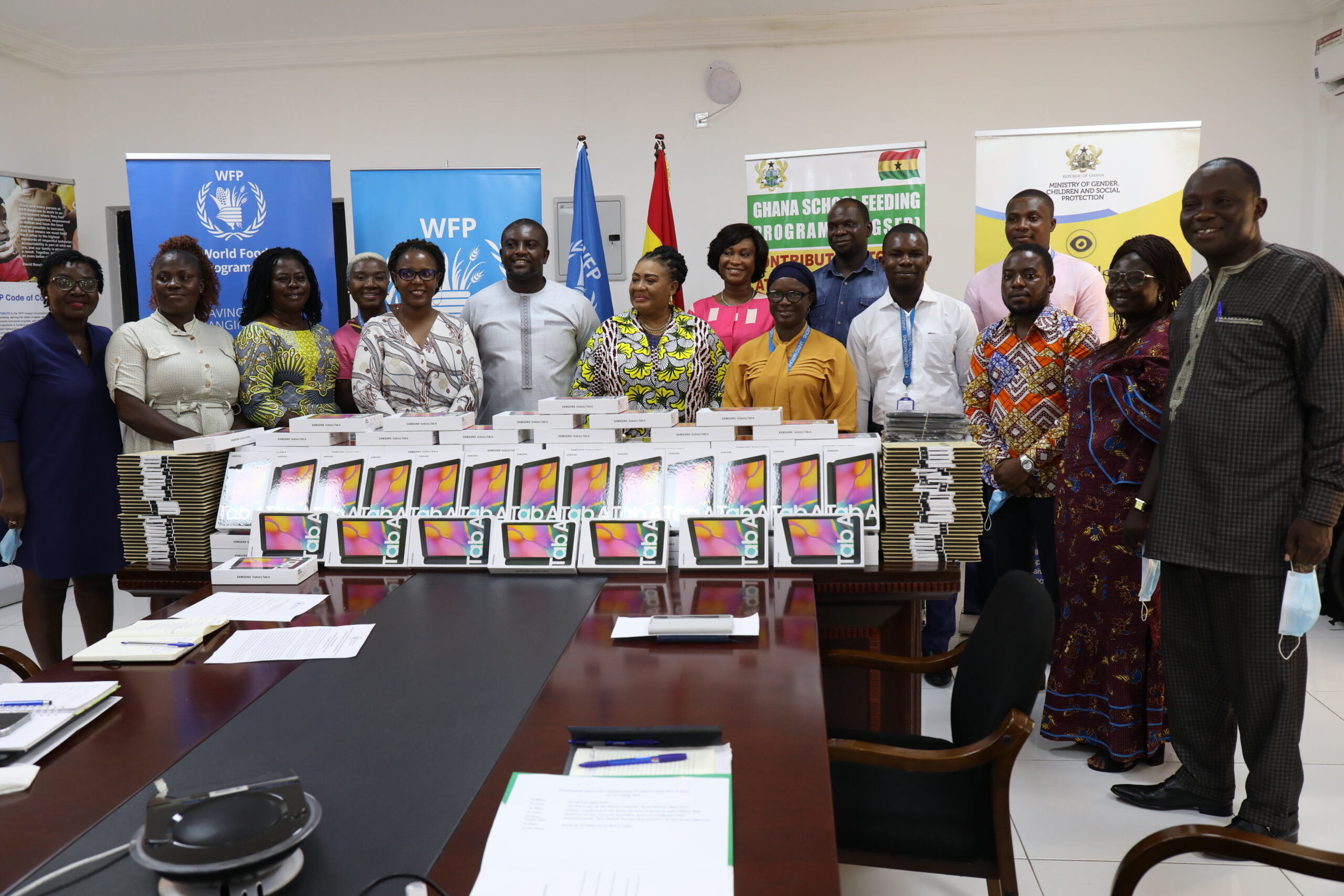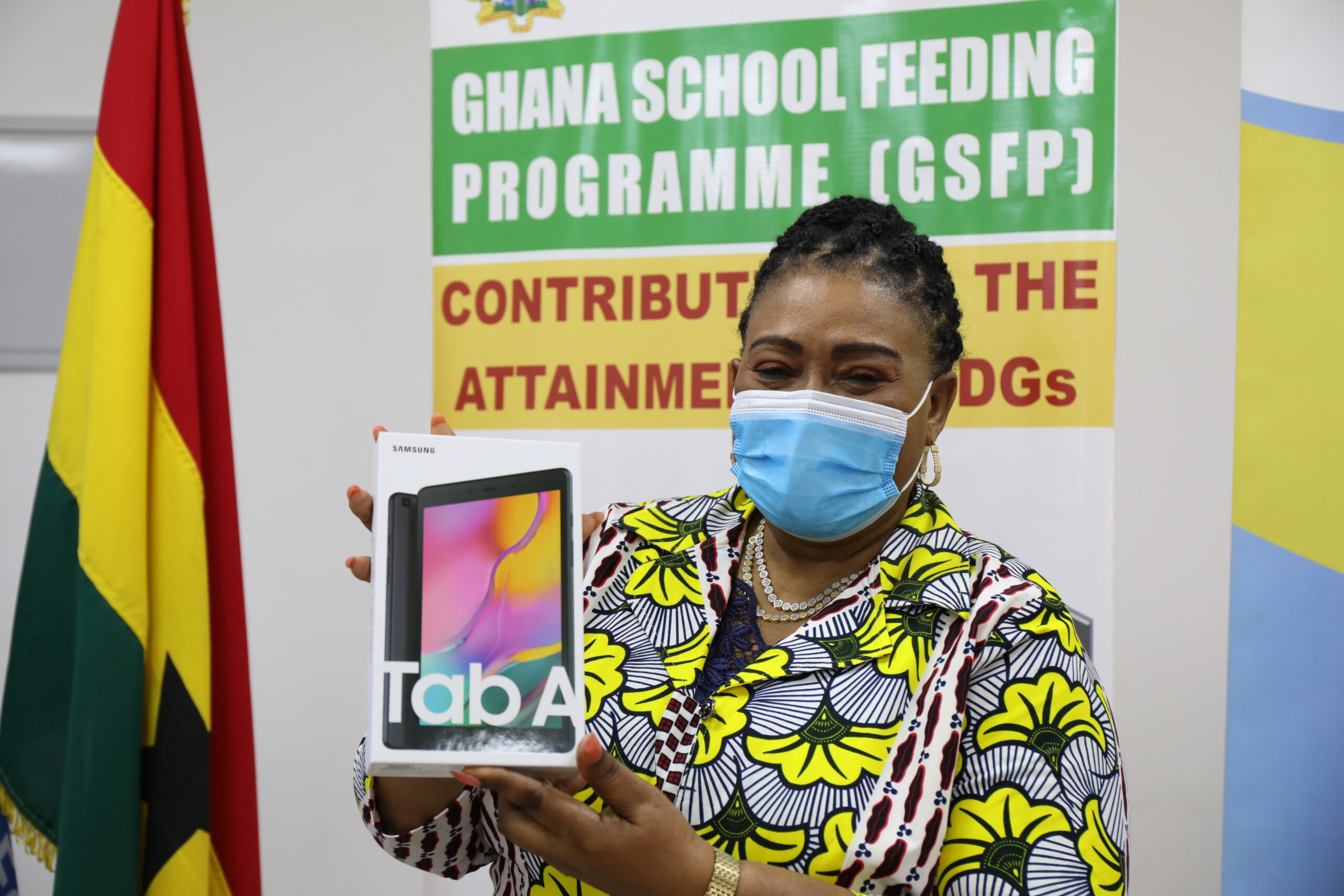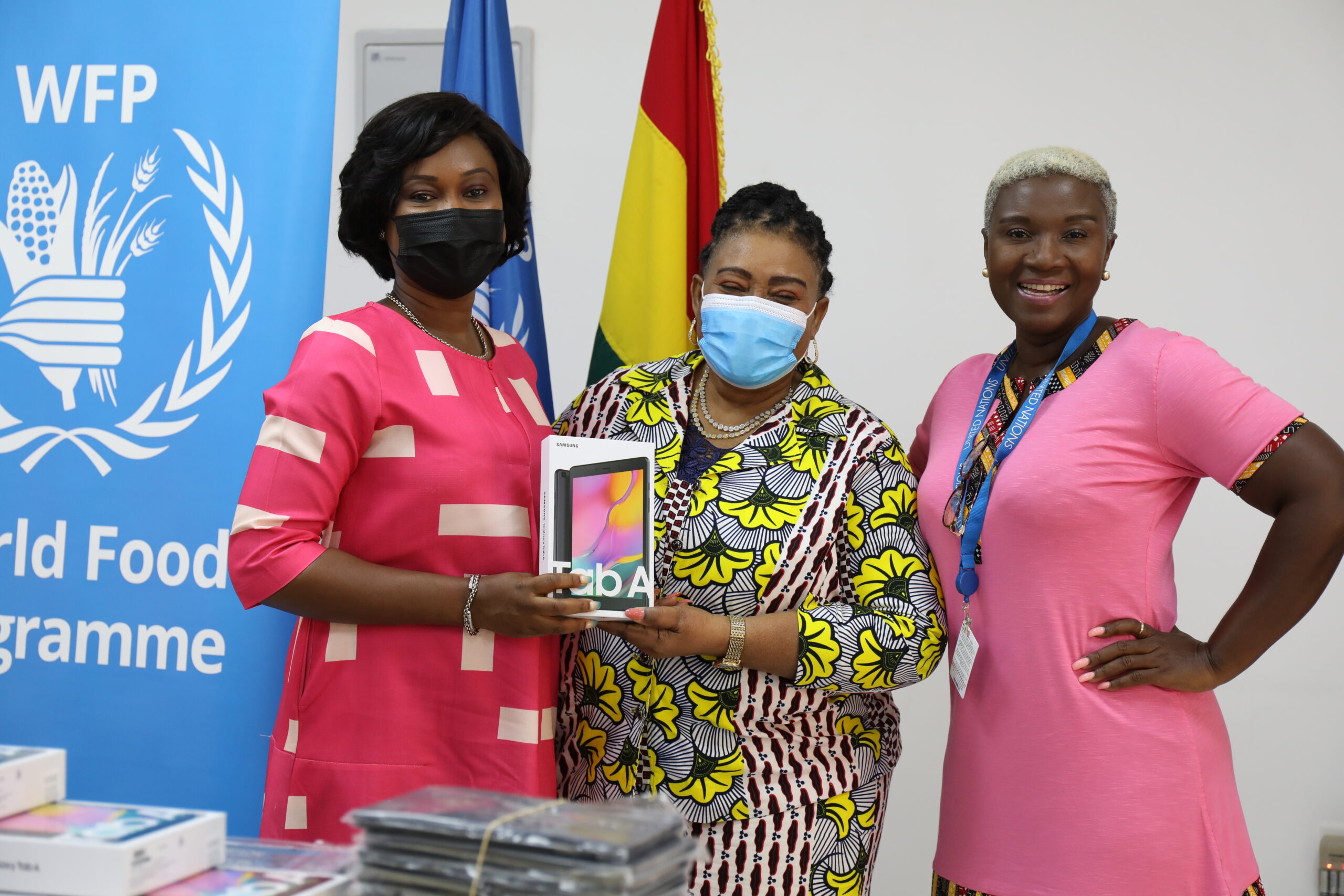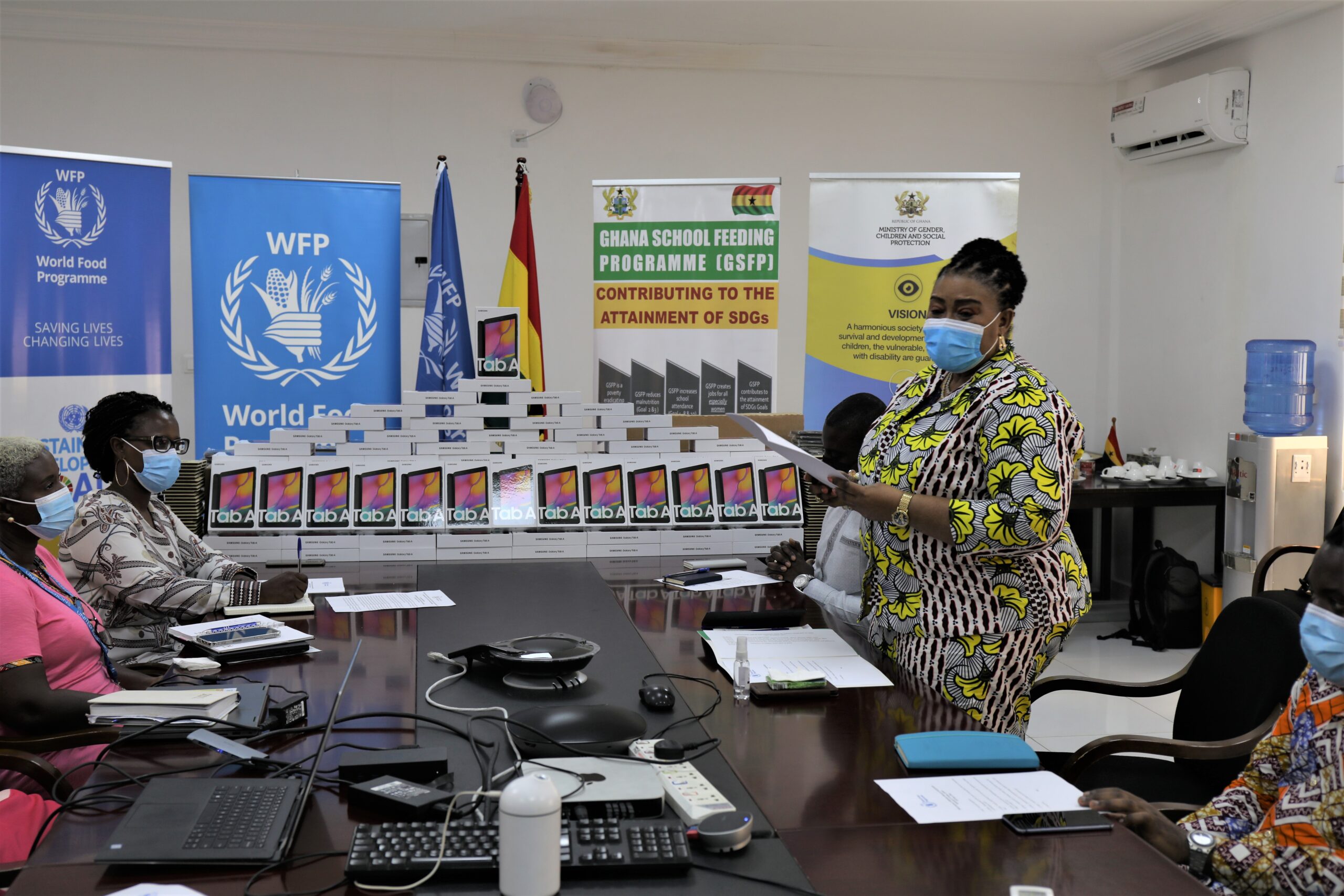The Ghana School Feeding Programme (GSFP) has taken delivery of 300 digital tablets from the World Food Programme (WFP) to pilot the digitization of its monitoring and evaluation system.
The Samsung digital tablets, uploaded with Tableau and ONA software, would be deployed nationwide to track, among others, daily attendance and feeding in selected schools across all the 260 metropolitan, municipal and district assemblies.
The National Coordinator of the Ghana School Feeding Programme (GSFP), Dr. Mrs. Gertrude Quashigah, at a short handing over ceremony in Accra, was elated because the Programme’s dream of going digital is now a reality.
“These tools would help GSFP to digitize our monitoring system in order to ensure real speed and more efficiency in the programme. It will also help in our quest to tighten all loose ends at the local levels where the actual implementation of the programme take place”.
She noted that the tablets would also help to streamline the day-to-day activities of GSFP, especially in terms of validating enrolment figures, flow of information and checking the performance of caterers in general, and effectively injecting sanity into the operations of the programme.
Mrs. Quashigah was optimistic that switching from manual to digital operating system would invariably enhance GSFP’s credibility, transparency and accountability.
Describing the partnership between GSFP and WFP as “solid” and “worthy”, the National Coordinator assured that the tools would be used for the purpose for which they were donated and maintained for maximum benefit.
She however called for support to digitize the entire Ghana School Feeding Programme in the nearest future for the delivery of an effective Home-Grown School Feeding Programme in Ghana.
Ms. Anna Mukiibi-Bunnya, WFP Representative ad interim and Officer-in-charge, reiterated the importance of the digitization project as well as its ultimate goal.
“In summary, the tablets will enhance the monitoring and reporting capacity of the Ghana School Feeding Programme as actual data on school attendance and feeding will be generated to enable payments to reflect these numbers. This should lead to cost effectiveness and savings which can be used to expand the programme, to reach more school children. This is the ultimate goal.”
Since the tablets would run on data, and considering the wobbling network situation in some parts of the country, Ms. Mukiibi-Bunnya appealed to the telcos to support GSFP with the required data for the sustainability of the project.
Meanwhile, the Ghana School Feeding Programme has secured SIM Cards loaded with data for the tablets to ensure internet accessibility and easy data transfer.
Deputy Director General, Quality and Access at the Ghana Education Service, Dr. Kwabena Bempah Tandoh, commended the project and announced that the GES would also rollout a system that would track students’ attendance, and hope to share data with GSFP on that level too.
Touting the importance of school feeding, he said, “as at now, we have data and evidence to show that if you go into communities where the school feeding programme is happening in one school and not in the other school, it shows in the enrollment. Most of the students gravitate to the schools where there is a school feeding programme”.

The Director of Monitoring and Evaluation at Ghana School Feeding Programme, Mrs. Akyere Frimpong Manu, who is in charge of the project implementation told journalists that training of trainers workshop is being organised for GSFP staff at the National Secretariat.
The trained team, she said, would be deployed for nationwide training from October 18 to train headteachers, Circuit Supervisors and staff of GSFP at the regional level on the use of the tablets.
Over 300 users are expected to be trained to operate the tablets at the pilot stage.











































































